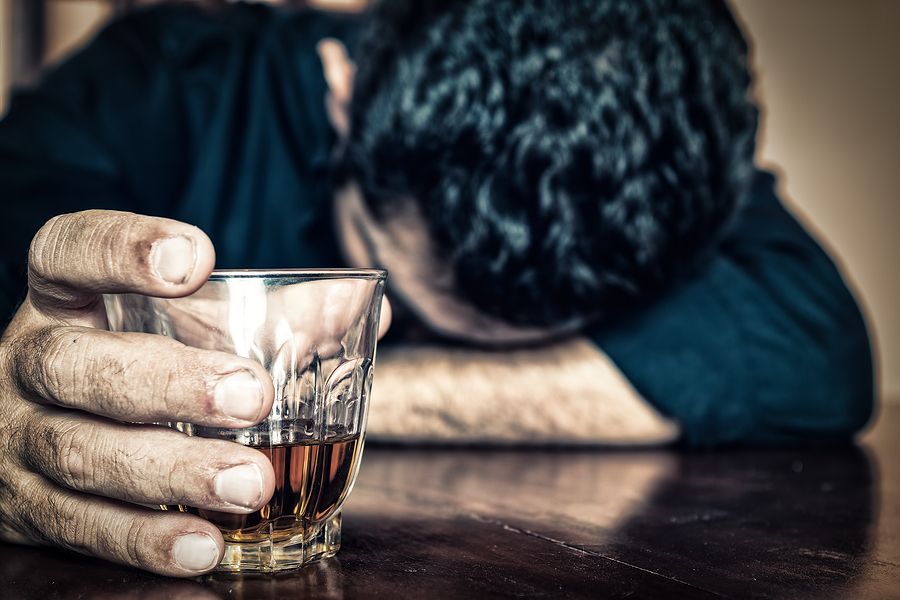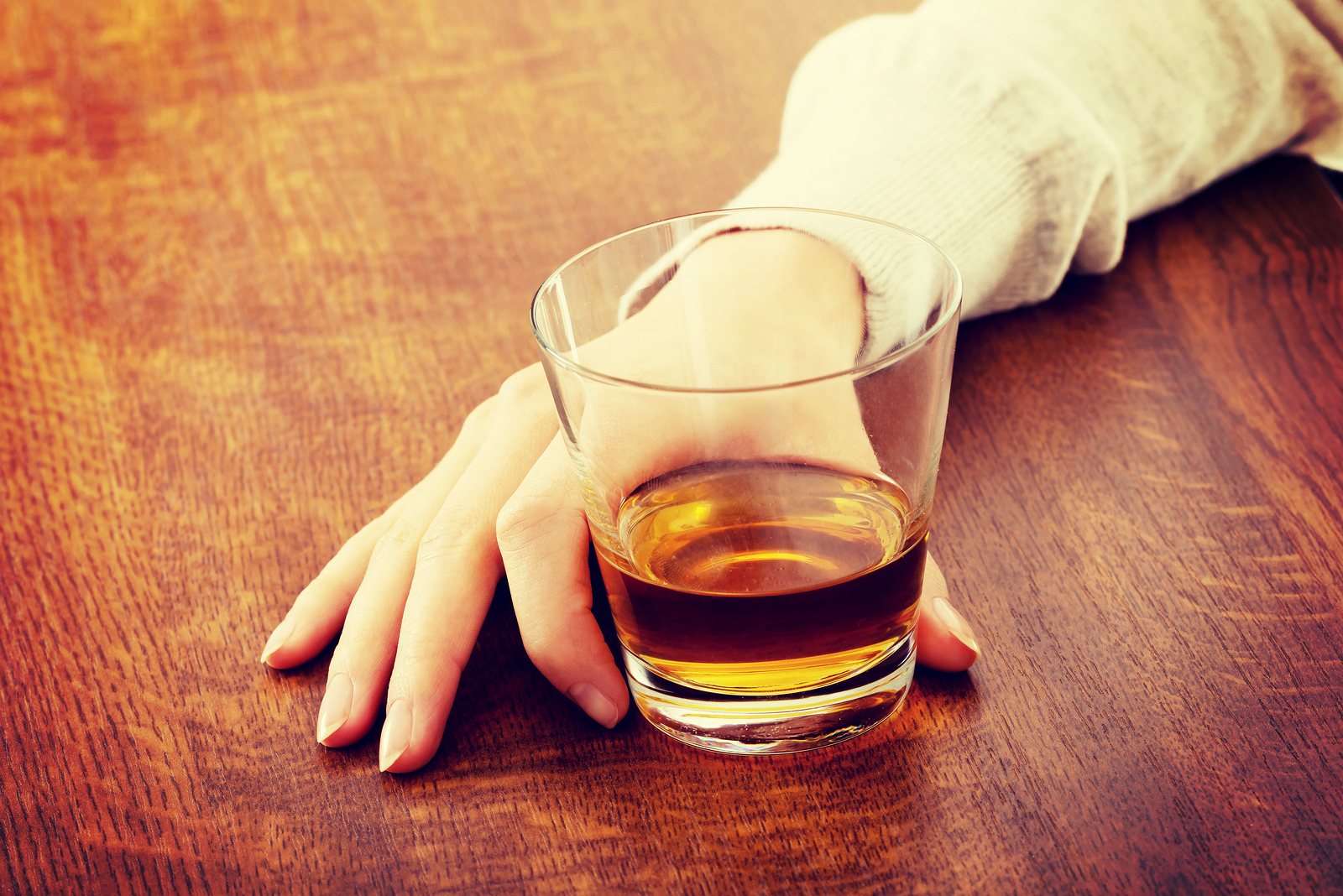 According to the National Institute on Alcohol Abuse and Alcoholism, 7 percent of Americans age 18 and older had an alcohol use disorder in 2013. That amounts to 16.6 million people. Of those, 1.3 million sought help for their problem at a specialized addiction treatment center. However, these numbers only apply to those who both recognize and admit they have a problem with alcohol.
According to the National Institute on Alcohol Abuse and Alcoholism, 7 percent of Americans age 18 and older had an alcohol use disorder in 2013. That amounts to 16.6 million people. Of those, 1.3 million sought help for their problem at a specialized addiction treatment center. However, these numbers only apply to those who both recognize and admit they have a problem with alcohol.
Admitting you have a problem with alcohol is often the first step on the road to recovery, but what if you’re not sure? What is the line between harmless social drinking and dependence? It can be difficult to honestly assess your own drinking habits without help from an outside party.
The National Council On Alcoholism and Drug Dependence uses a simple series of questions to help you figure out if you’re on the road to addiction. Their website lists questions like:
- Do you sometimes feel anxious if alcohol is not available?
- Has your physician ever advised you to cut down on your drinking?
- Do you try to avoid contact with loved ones while you are drinking?
- Have you been having more memory blackouts recently?
- Do you sometimes stay drunk for several days at a time?
Answering “yes” to any of these questions could point to a problem, but it’s difficult to say for sure until you speak to a medical professional.
What Is an Alcohol Problem?
The term alcohol problem is often used but ill defined. It can mean anything from a pattern of drinking that causes problems with friends, family, and work to full-blown alcoholism. Alcohol use disorder (AUD) is a psychological disorder outlined in the Diagnostic and Statistical Manual of Mental Disorders (DSM-5). The DSM asks a series of questions about an individual’s drinking habits, and answering in the affirmative for just two or more of these questions is an indication of AUD. Four to five “yes” answers points to moderate AUD, and six or more indicates severe AUD.
The most basic way to determine if you have a problem is to think about what a disorder means. In order for something to be classified as a disorder, it has to interfere with your day-to-day life. If something significant in your life has changed, and not for the better, that’s an indication of a problem. This could be a physical change, an emotional change, a change in your interactions with loved ones, a change in your performance at work, and/or a significant change in your social life.
Physical Signs of Addiction
As an intoxicant, alcohol has a significant effect on the brain and the body. The more alcohol that is consumed, the bigger that effect. The longer that regular heavy drinking occurs, the more the body changes in an attempt to accommodate the substance.
Significantly increased tolerance is an indication that a drinking problem may be forming. People who consume alcohol regularly will find that as time goes on, they need to drink more to reach the same level of intoxication. Long-term heavy alcohol users may begin to notice that their physical state is different than it used to be even when they’re sober, and in fact, they may need a drink just to feel “normal.”
Memory impairment is a common effect of binge drinking, or excessive alcohol use. Binge drinking is defined as five or more drinks in a two-hour period for men and four or more drinks in a two-hour period for women. If enough alcohol is consumed in a short period of time, an individual might experience a memory blackout – a period of time in which an intoxicated person stops recording memories and therefore is unable to recall key details or entire periods of time once sober. If you wake up the next morning after a night of binge drinking and can’t remember what you did or where you were during a point of the night, you experienced a blackout.
In a survey, 51 percent of college students reported experiencing an alcohol-related blackout at some point in their lives. However, frequently blacking out while drinking can be an indication of a serious drinking problem.
Experiencing withdrawal symptoms from alcohol is also a strong indication of a developing dependence. This means you are beginning to develop a physical addiction to the substance. Withdrawal from alcohol tends to be very unpleasant and often acts as a deterrent for people who want to stop drinking. At this point, an individual likely needs medical help to get through it and to avoid the dangerous and potentially deadly effects of detox.
Symptoms of alcohol withdrawal can include:
- Anxiety or depression
- Headache
- Nausea and vomiting
- Loss of appetite
- Irritability
- Insomnia and fatigue
- Shaking or tremors
- Difficulty concentrating
- Rapid heart rate
- Dilation of the pupils
- High blood pressure
- Fever
- Profuse sweating
- Confusion/disorientation
- Hallucinations
- Seizures
If you experience any of these symptoms, starting eight hours after your last drink, and you don’t think it’s a simple hangover, it’s time to get help.
Life Disruption
As alcohol dependence develops, it begins to interfere in the person’s life. Normal habits and schedules need to change to accommodate the need to drink. Early signs of a drinking problem are usually detected first by those closest to the addicted individual as they notice that the person is not as reliable or that there seems to be a shift in personality. Conflict arises due to concern from the person’s loved ones; irritability due to frequent hangovers, sleep disruption, and withdrawal; and a decreased ability to perform basic life tasks like showing up to work, cleaning the house, or caring for children.
If a loved one has started acting differently and you suspect an alcohol problem, look for these signs:
- Avoiding social situations that are unlikely to involve alcohol
- Needing an “eye-opener” – a drink to get going in the morning
- Increased frequency in injury, accidents, and physical fights
- Stark change in personality when drinking
- Sneaking drinks, gulping drinks, or drinking before a party begins
- Minimizing the amount of alcohol that was consumed or avoiding talking about it
- Continued drinking even after significant legal consequences like a DUI
- Increased absences from work, class, family events, and/or social responsibilities
- Attempts to cut down on drinking result in failure
The main thing to keep in mind is that if a person’s drinking is causing problems but the individual refuses to stop or can’t stop, it’s likely a drinking problem.
What to Do about It
The Institute for Health Metrics and Evaluation recently found that heavy drinking is on the rise – up 17.2 percent from 2005 to 2012. Because alcohol is both a psychologically and physically addictive substance, this will inevitably mean an increase in the number of people who become “problem drinkers” and develop a dependence on alcohol.
If you suspect you might have a drinking problem, there are plenty of people you can talk to. There are various organizations and clinics dedicated to helping people deal with or avoid alcohol addiction. Your primary care physician can help you get started and refer you to specialists. Many mental health professionals specialize in addiction treatment and can help you deal with life issues that might be driving you to excessive drinking. Most people who struggle with alcoholism will find the most comprehensive and effective help in an inpatient addiction treatment program that includes medical detox and intensive therapeutic care.
If you suspect that a loved one is developing alcohol dependence, it’s important to use supportive, positive language when you approach that person. The individual may become defensive or feel attacked, and judging the person, getting angry, or using stigmatizing labels like alcoholic can do more harm than good. Also, try to pick a good time when the individual is calm and in a good place. Having another person there to moderate the conversation may help.
Each person dealing with a medical disorder deserves help, and an addiction disorder is no different. Anybody can fall into problem drinking and dependence, and the sooner you seek medical assistance, the better off you’ll be. If any of the signs above sound familiar, do the right thing for yourself and get on the road to recovery.
